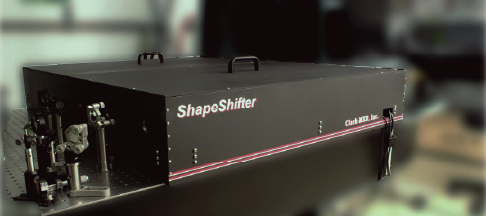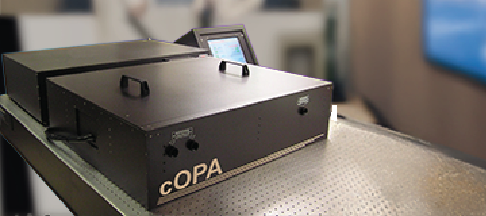Femtosecond Laser Spectroscopy & Microscopy: Advancing Ultrafast Science
Femtosecond laser spectroscopy and microscopy enable the exploration of ultrafast phenomena, providing unparalleled temporal and spatial resolution for studying molecular dynamics, material interactions, and biological processes.
These techniques drive breakthroughs in materials science, biophotonics, quantum optics, and biomedical imaging, enabling discoveries at the femtosecond timescale.
Femtosecond Laser Spectroscopy
This technique utilizes ultrashort laser pulses to investigate rapid electronic and vibrational transitions in molecules. Key applications include:
- Transient Absorption Spectroscopy & Microscopy – Investigate excited-state dynamics with femtosecond precision.
- Coherent Anti-Stokes Raman Scattering (CARS) Spectroscopy & Microscopy – Chemical-specific imaging without fluorescent labels.
- High S/N Pump-Probe Spectroscopy & Microscopy – Capture ultrafast optical responses with enhanced signal-to-noise ratios.
- 2D Spectroscopy – Explore multi-dimensional spectral interactions for advanced molecular studies.
- Ultrafast Electron Microscopy – Visualize electron dynamics with femtosecond temporal resolution.
- Time-Resolved Photo-Induced Electrochemistry – Examine charge transfer processes in photovoltaic and catalytic systems.
Spectrometers

Femtosecond Laser Microscopy
Femtosecond microscopy harnesses nonlinear optical effects to achieve high-resolution, deep-tissue imaging. Notable methods include:
- Coherent Raman Scattering (CARS & SRS): Chemical-specific vibrational imaging without fluorescent labeling.
- Two-Photon & Multiphoton Excitation Microscopy: Reducing photodamage for live-cell imaging.
- Second-Harmonic Generation (SHG) Microscopy: Probing molecular structures in biological and crystalline systems.
- Third-Harmonic Generation (THG) Microscopy: Label-free imaging of interfaces and cellular membranes.
- Fluorescence Lifetime Imaging Microscopy (FLIM): Characterizing molecular interactions via fluorescence decay.


